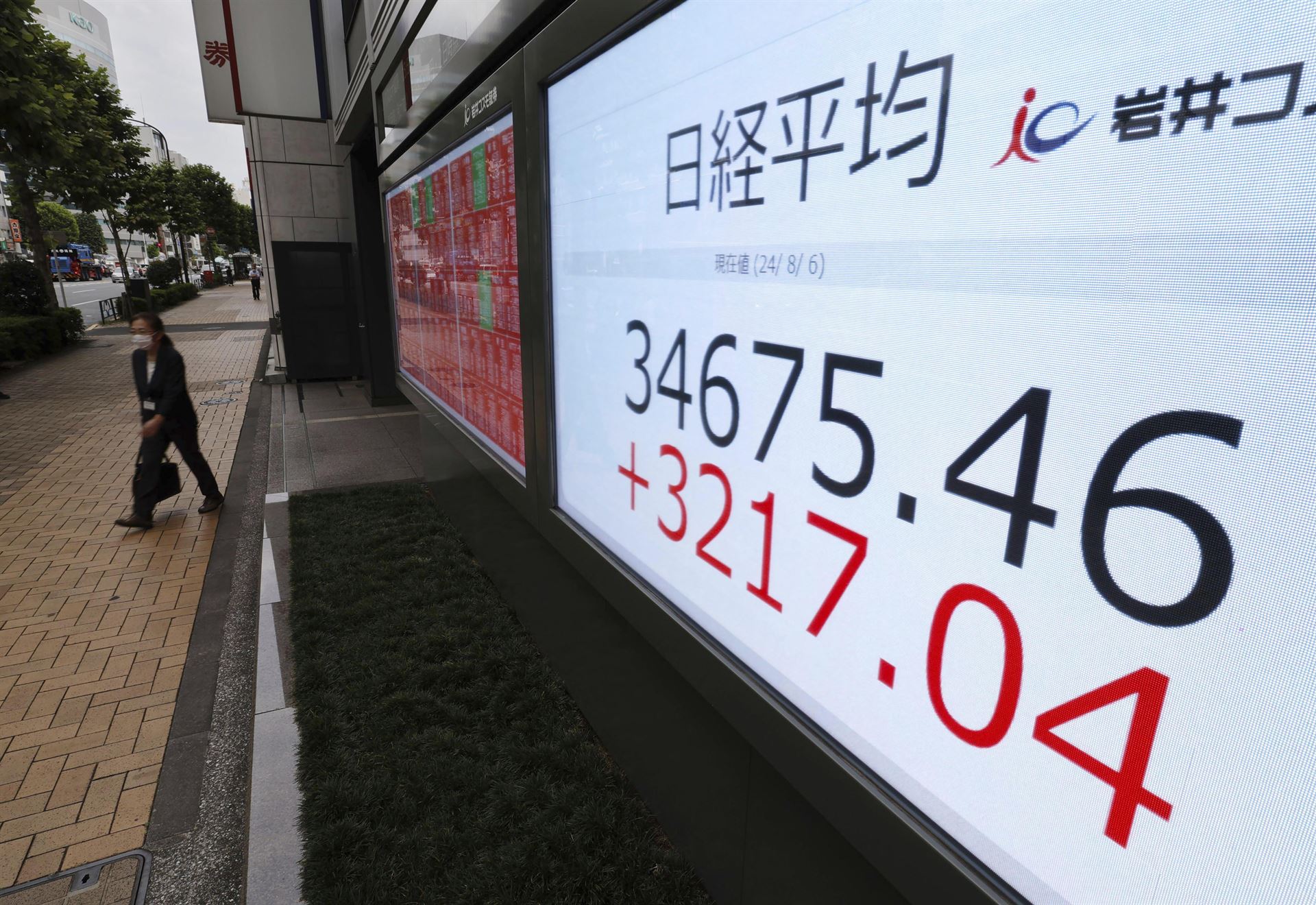
TOKYO - Japanese leaders rushed on Tuesday to assuage concerns about the sharp swings in the country's financial markets, with the prime minister urging calm and senior finance officials convening an emergency meeting to discuss the global stock market sell-off.
The executives from Japan's Ministry of Finance, the Financial Services Agency, and the Bank of Japan held the trilateral meeting on Tuesday afternoon, said Atsushi Mimura, the country's top currency diplomat, emphasizing close coordination between the government and the central bank.
READ MORE: Japan's Nikkei plunges 12.4% as Tokyo, Seoul apply circuit breakers
"The government and the BOJ agreed that it is important to monitor developments in economic and financial markets domestic and abroad with a sense of urgency while calmly assessing what is happening," Mimura told reporters after the meeting.
The gathering is typically held in times of market turbulence, partly as a gesture that authorities are willing to act. A similar meeting was last held on March 27 this year following a sharp decline in the value of the yen.
READ MORE: Tourist splurge in Japan creates new headache for luxury brands
Stocks tumbled across the world on Monday as a sell-off that began last week picked up momentum, only to recover some ground on Tuesday, leaving bruised investors feeling whip-lashed.
The Nikkei stock index soared on Tuesday in a relief rally after plummeting 12.4 percent on Monday, its biggest percentage drop since the 1987 Black Monday crash. It ended Tuesday's trade up 10.2 percent at 34,675.46.
READ MORE: Japan spent $36.8b in July intervention, official data shows
Mimura declined to comment on factors driving the stock plunge but said the three parties shared a view that the Japanese economy will continue to gradually recover.
Japanese Prime Minister Fumio Kishida urged caution, saying it was important to make calm judgments about the market. He offered an optimistic outlook for the world's fourth-largest economy, citing factors such as the first rise in inflation-adjusted real wages in more than two years in June.
"We recognize the Japanese economy continues to make a strong transition to a new stage," Kishida told reporters in Hiroshima earlier on Tuesday.
Japanese Finance Minister Shunichi Suzuki said the government would monitor and analyze financial market moves and work closely with relevant authorities, including the BOJ.
"It's important to realize resilient economic growth while responding to changes in front of us," Suzuki said.


